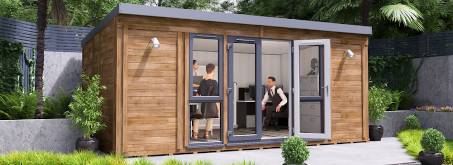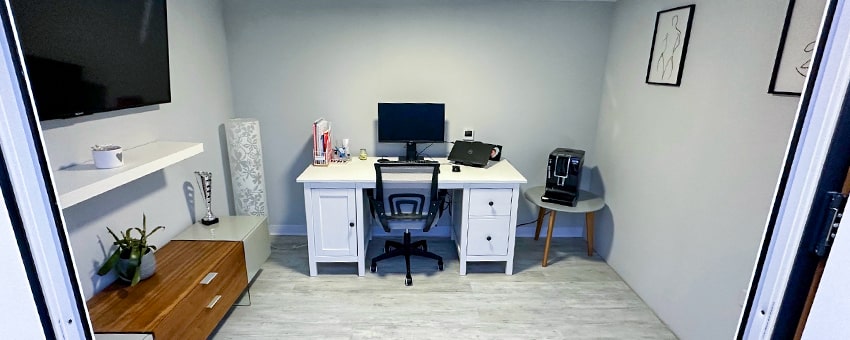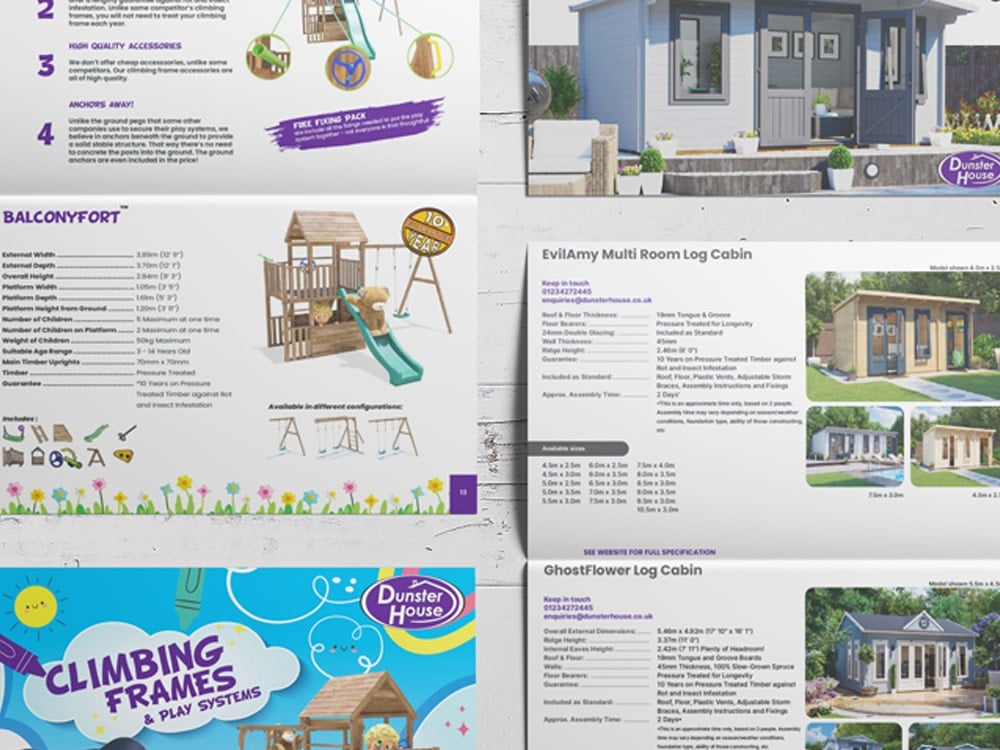Learn how to maintain your Garden Office. All the Garden Offices we build at Dunster House are built to last. However to prolong its life and protect your investment, we recommend that you perform regular maintenance.
Below you will find a garden office key area maintenance checklist, which we have created a supplementary guide for.

How to …
Treatment
One of the great benefits of our garden offices is the low level of maintenance that is required to keep them in top condition. All that is needed is the application of a clear water repellent wood treatment to prepare the timber for the wetter seasons.
All of the garden offices in our Titania and Helena ranges are fully pressure treated as standard. We take the pre-cut lengths of spruce used on the exterior and place them in a large pressure treatment tank. In this tank the timbers are infused with a non-toxic preservative. We add a brown colourant during this process, giving the timber a rich brown colour. By pressure treating the timber, we can offer a genuine 10-year guarantee against rot and insect infestation.
This treatment prevents the timber from rot, decay and insect infestation for up to 10 years. Due to this costly but effective process we can offer our customers a genuine 10-year guarantee against rot and insect infestation on the bearers. We only suggest that you apply a good quality water repellent to prolong the longevity of the timber.
Airflow
Constant airflow beneath and around the garden office is required to prevent the entrapment of moisture within the building.
Moisture build-up inside any garden building is an issue. Moisture can lead to damp and mould settling in. Thus rendering the building a health hazard. We have designed our garden offices to combat these issues at the source.
The floor supplied in the Titania and Helena range of garden offices also benefit from the moisture control we put in place. The floor structure starts with pressure treated bearers which form the lowest part of the garden building. On the bearers will then be fixed our unique floor panels. These are made up of a layer of WPC (Wood Plastic Composite) a material known to be highly resistant to rot and decay, a layer of polyisocyanurate insulation to prevent heat loss in the floor and lastly, we add a hard-wearing layer of MFP flooring.
We recommend that the gaps between the bearers are kept clear of any obstruction to allow air to pass beneath the floor and circulate through the building to keep it sufficiently ventilated.
Roof Debris
The final thing that any customer must ensure is done to maintain the condition of their garden office is clear the roof of any leaves or debris that might build up and thus prevent water to efficiently slide off the roof. If this happens and large amounts of water are held on the roof, there will be a threat of water ingress.
Therefore, the roof of the garden office must be checked regularly and any leaves and debris removed.
During the winter months, the hinges of both doors could seize up if left untended. To prevent this from happening you should regularly oil the hinges of all the windows found in your garden office, ensuring that they remain easy to open.
At Dunster House, we’re committed to making sure you get the best. So if you have any questions, we’re happy to help! Contact us if you need any help or further information.
Learn about the features and benefits of a Dunster House Garden Office




